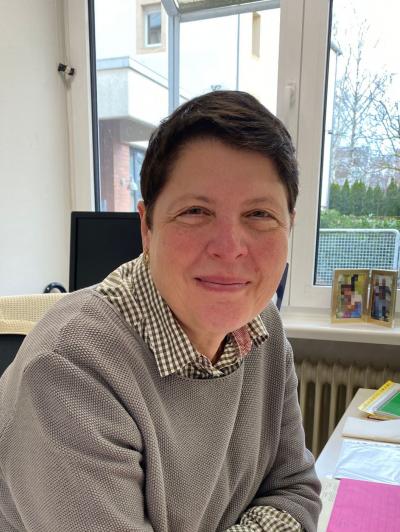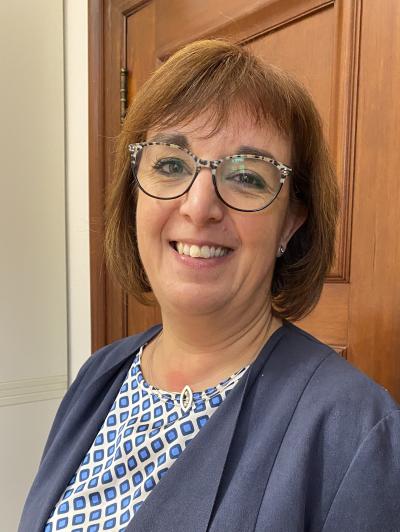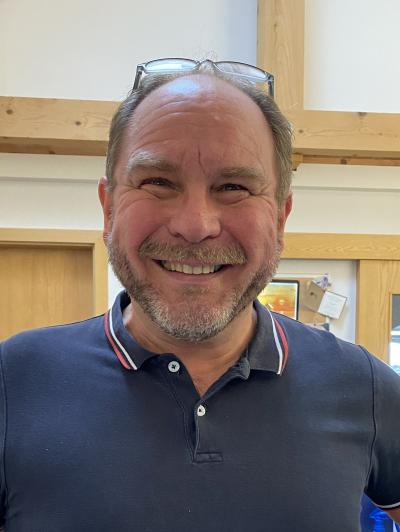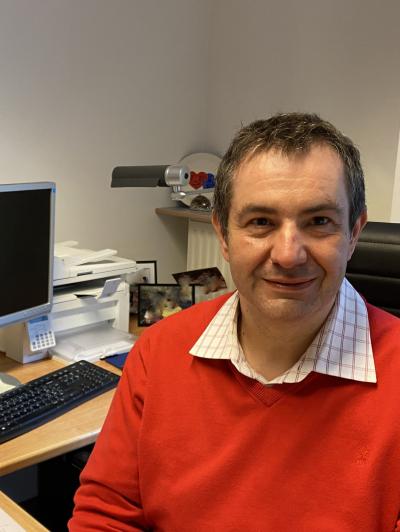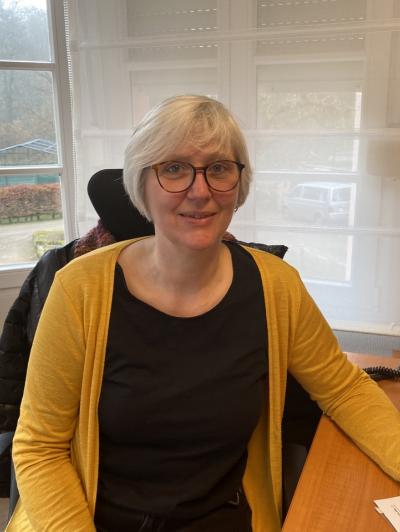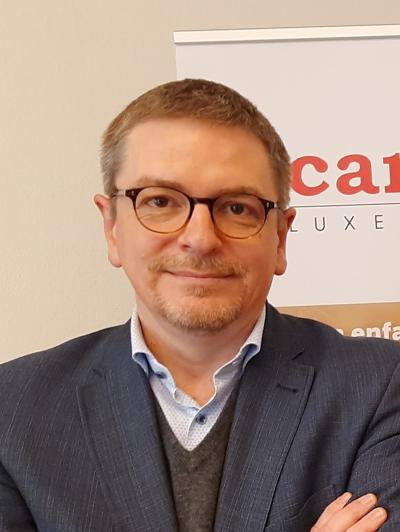
Pit Bouché - Everything is possible!
Friday 25 October 2019
Since the end of April Pit Bouché has taken over the presidency of Caritas Accueil et Solidarité (CAS) and the vice-presidency of the Fondation Caritas Luxembourg (FCL) from Charel Schmit. A first interview with the new president after his first months in office:
What are your personal motivations for getting involved with people living in the greatest precariousness?
I want a world where each of us can live in conditions that respect our dignity. A world, where each individual can fulfil himself, find his place fully and take his responsibilities.
Having a roof over your head and enough to eat is an essential necessity. This gives us the fundamental stability and security to face the other challenges of our lives. Of course, as human beings, we aspire to much more. We want to flourish, find meaning in life and develop our abilities. We want to feel useful and be there for our loved ones. We want to be considered by our fellow human beings and to share within our community. We want to receive respect and understanding, consideration and love. To meet these deepest needs and truly increase our well-being, we must build a society that is more focused on the value of the human being and the importance of interpersonal relationships.
I am deeply convinced that such a society is possible. We should obviously distribute wealth more equitably and avoid these scandalous inequalities that destroy social cohesion. We should further mobilize our enormous creative forces and extraordinary technological development to put it at the service of human progress. But above all, we must form an economy that fulfills its intrinsic role, i.e. to respond to but also to leave a place in our lives for our real needs. Why do we still accept today an economic framework that regularly tramples on the common good and too often violates our fundamental values and freedoms, which we have nevertheless given ourselves as a democratic society? Why do we even give priority to inhuman economic dogmas in our society and often in our own lives?
A world without poverty is possible. Poverty is not inevitable. An economy that respects people and our environment is possible. That is my motivation. On the one hand, I feel anger because I consider that many injustices, hopelessness and suffering are now totally unnecessary. We should have more courage in politics, in the economic world and in our daily lives to choose compassion, instead of being guided by indifference, fear or mistrust towards others. On the other hand, I am very optimistic because we have our destiny in our own hands, especially in our democratic societies. To change our world, we certainly need discipline and determination and we must work hard in the name of aggressive humanism. But, anything is possible! And that is so reassuring.
Who are you?
A naive "Gutmensch"? Someone who has high ethical requirements towards society and himself, knowing that these requirements cannot be met every day and in every situation? Which is not a big problem, we all have our faults and we all make mistakes. Fortunately, there is always the opportunity to do better next time or on the next day.
As with almost all of us, it was my parents who had a profound impact on my vision of the world. What my family has given me is that, to quote the Universal Declaration of Human Rights, all human beings are born free and equal in dignity and rights. They also gave me a sense of social commitment. My father was president of the association "ATD Fourth World Luxembourg" which acts according to the inspiring principles of its founder, Joseph Wresinski: "Every person is an opportunity for humanity" and "There, where men are condemned to live in poverty, human rights are violated". Uniting to enforce them is a sacred duty. "My mother has long been involved as a teacher in "special classes", i. e. children who have experienced difficulties at school. And my aunt, Sister Marie-Jeanne, has been involved with Caritas for more than twenty years and has supported people in prison to help them reintegrate into society. I certainly do not miss the examples to follow and I am grateful for them.
From the age of 17 until I was 34, that is to say for half my life, I became politically involved in the Jeunesse chrétienne-sociale (CSJ). I studied political science at the Université libre de Bruxelles, from which I mainly learned that everything must be challenged, especially the things that are dogmatically presented to us as "alternativlos" (without alternative). During my studies, I wrote articles for the Luxemburger Wort's domestic policy editorial team. From 2011 until the beginning of 2019, I worked as an administrative assistant and political advisor at the General Secretariat of the Christian Social Party (CSV). You can see a little bit of the sphere from which I come[smile]. Recently I started working for a municipal administration.
Which challenge do you want to take up first?
The interactions and the interdependencies and therefore also the solutions to major societal problems are extremely complex. As Caritas, we must have a clear, coherent and transversal vision of our role and commitments. So until the end of the year, my priority is that we succeed together, Caritas Accueil et Solidarité (CAS) and Fondation Caritas Luxembourg (FCL), in finalizing our action plan and our common strategy in order to benefit over the next five years from an effective instrument that can guide us in a structured way through all our services.
What are your means of action and how do you see your role?
For me there is only one form of leadership that counts: "Leading by example". This does not mean that it is up to me to do or decide everything or to interfere in everything - I obviously would not even have the skills to do so - but I must carry out my own tasks and responsibilities to the best of my ability and this while respecting the values of our organisation, especially as regards our living together and mutual respect on a daily basis within our Caritas family.
Then, I always felt that you can't do anything on your own. I don't work at the Centre Ulysse, nor at Courage, nor at Creamisu. I'm not a streetworker or a social worker. And it is impossible for me to be physically present every day at our headquarters or at management. Over the past few months, I have visited most of the services and met a good number of staff members. I have seen that there is no shortage of skills and passion for social work within Caritas, either among collaborators or volunteers, even though the work done is certainly not among the most pleasant or easy. As CAS President and Vice-President of the FCL - two volunteer tasks - one of my most important missions is to ensure that employees at every level of our organisations can perform their duties as well as possible for the benefit of our users. Together with the President of the FCL, Ms. Jacobs, and all the other members of the two Boards of Directors and Management, I therefore have a responsibility to support the collaborators and volunteers with a motivating work environment that, while demanding and motivating them to engage their full potential, guarantees them a good working climate, develops them in a context with clear vision and objectives, provides them with the material resources necessary to accomplish their tasks (e. g. by negotiating at the political level) and relies on transparent communication. I can tell you that it is a challenging, but inspiring and challenging commitment.
Linked news
Donate
Your donation is essential to ensure the continuity of Caritas Luxembourg's actions in the service of the poor.
Other donation methods
